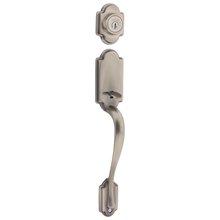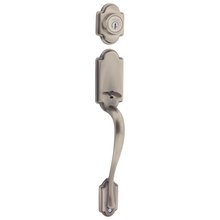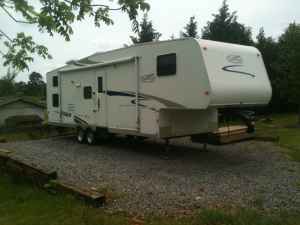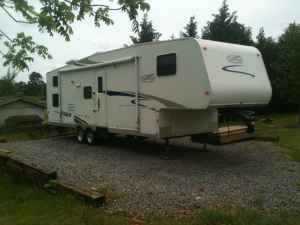Have you ever had an exterior door lock mechanism fail? In our last home (a builder’s spec home, as we discovered after buying), we had not only one, but two different exterior door locks fail. After disassembling the locks, we discovered that pieces of the lock mechanism had simply broken and were not repairable. Now I’d never heard of a lock breaking from normal use in only 6 years’ time before this. Our guess was that the locks were very inexpensive locks — perhaps the cheapest the builder could find. They looked nice — had that stylish antique bronze finish that was very popular — but were obviously not robust.
So… we headed down to the local Home Depot (or Lowe’s — I forget which one) to buy replacements. We discovered a wonderful new invention: Kwikset Smartkey sets. Basically this type of door hardware is a middle-of-the-line quality knob set with a unique feature. You can re-key the locks to match your other locks. That allows you to keep the same exterior housekeys from your remaining locks without the expense of paying a locksmith to re-key the new locks.
I had another thought as we were matching the locks to the keys at the old house… if the entire house had Smartkey hardware, we could change the locks on our doors if we ever felt the need all on our own. You could even change them temporarily, say, if you had a housesitter for a particular period of time. This video demonstrates the method:
Since each door hardware set comes with its own key, you already have as many different possibilities as you have keys to begin with.
As we plan the details of our homestead, I am planning to look at Kwikset Smartkey door hardware for the exterior doors. By planning ahead and watching for specials, I should be able to do much better than paying retail locally. If I can find smartkey systems for similar pricing to other similar-quality models, it will be worth the effort. If you are just in the market for a replacement set, this might be just the ticket for you.
I found very reasonable prices on attractive Handlesets at the www.handlesets.com site.




